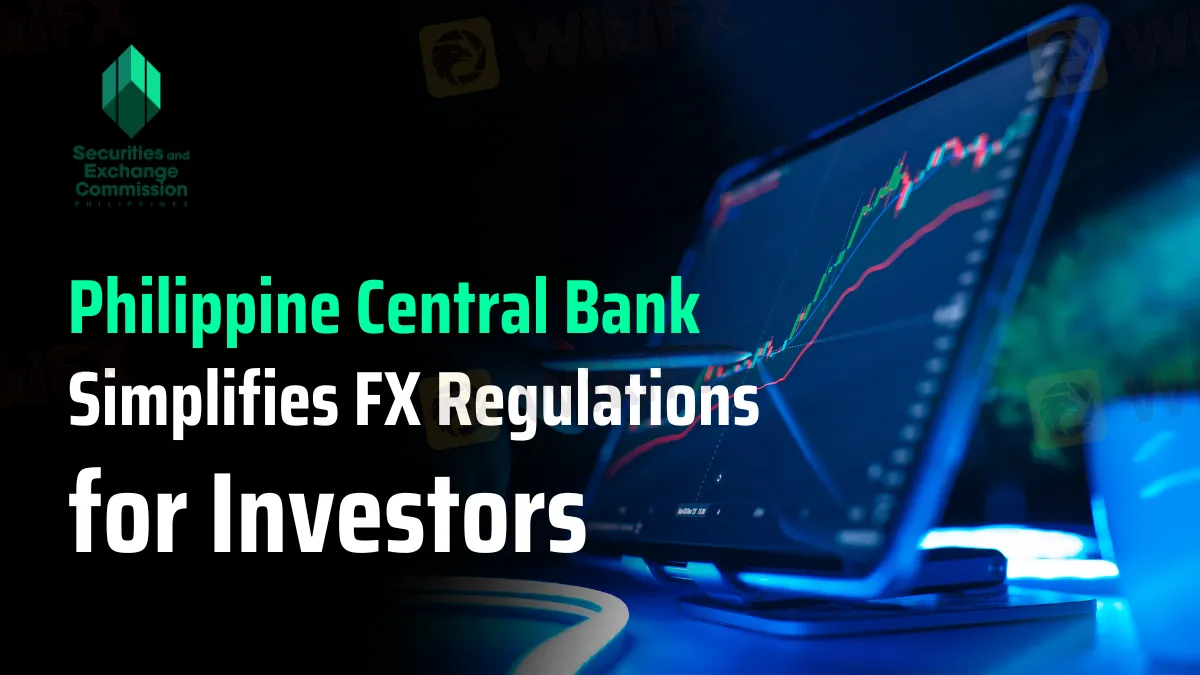简体中文
繁體中文
English
Pусский
日本語
ภาษาไทย
Tiếng Việt
Bahasa Indonesia
Español
हिन्दी
Filippiiniläinen
Français
Deutsch
Português
Türkçe
한국어
العربية
Philippine Central Bank Simplifies FX Regulations for Investors
Abstract:The Philippine central bank's new FX regulations streamline investment processes, eliminating bureaucratic hurdles and fostering a more attractive environment for foreign investors.

The Philippine central banks monetary board has approved significant amendments to foreign exchange (FX) regulations, aiming to simplify the process for foreign investments in the country. These changes are designed to make the Philippines a more attractive destination for foreign investors by streamlining procedures and reducing bureaucratic hurdles.
Under the new regulations, foreign investments can now be registered upon reporting by any authorized agent bank to the Bangko Sentral ng Pilipinas (BSP). This move eliminates the previous requirement for the issuance of Bangko Sentral Registration Documents, provided the investments are registered through the authorized agent banks.
The amendments also include streamlined reporting forms and procedures, making it easier for authorized agent banks to comply with the new guidelines. These changes are expected to reduce the administrative burden on banks and investors alike, fostering a more efficient investment environment.

A transitional period has been established, lasting until September 30, 2024, to allow authorized agent banks to adjust their systems and processes in line with the new regulations. During this period, banks are expected to make the necessary preparations to fully comply with the amended guidelines.
These regulatory adjustments are part of the BSP‘s ongoing efforts to enhance the ease of doing business in the Philippines. By simplifying the process for registering foreign investments, the central bank aims to attract more foreign capital, which is crucial for the country’s economic growth and development.
The streamlined process is anticipated to boost investor confidence, as it provides a clearer and more efficient pathway for foreign investments. This initiative aligns with the broader goals of the Philippine government, which are to create a more favorable investment climate and stimulate economic activity.
Overall, the amendments to the FX regulations represent a significant step towards improving the regulatory landscape for foreign investments in the Philippines. The BSPs proactive approach to updating its policies reflects its commitment to supporting economic growth and fostering a competitive business environment.
About BSP
The Bangko Sentral ng Pilipinas (BSP) is the central bank of the Philippines, responsible for maintaining monetary stability and ensuring a sound financial system. In the context of recent amendments to foreign exchange regulations, the BSP has taken proactive steps to simplify the process for foreign investments. By allowing foreign investments to be registered upon reporting by authorized agent banks and streamlining related procedures, the BSP aims to enhance the ease of doing business in the Philippines, attract foreign capital, and support the country's economic growth.

Disclaimer:
The views in this article only represent the author's personal views, and do not constitute investment advice on this platform. This platform does not guarantee the accuracy, completeness and timeliness of the information in the article, and will not be liable for any loss caused by the use of or reliance on the information in the article.
Read more

The Hidden Checklist: Five Unconventional Steps to Vet Your Broker
Forex broker scams continue to evolve, employing new tactics to appear credible and mislead unsuspecting traders. Identifying these fraudulent schemes requires vigilance and strategies beyond the usual advice. Here are five effective methods to help traders assess the legitimacy of a forex broker and avoid potential pitfalls.

Doo Financial Obtains Licenses in BVI and Cayman Islands
Doo Financial, a subsidiary of Singapore-based Doo Group, has expanded its regulatory footprint by securing new offshore licenses from the British Virgin Islands Financial Services Commission (BVI FSC) and the Cayman Islands Monetary Authority (CIMA).

CFI’s New Initiative Aims to Promote Transparency in Trading
A new programme has been launched by CFI to address the growing need for transparency and awareness in online trading. Named “Trading Transparency+: Empowering Awareness and Clarity in Trading,” the initiative seeks to combat misinformation and equip individuals with resources to evaluate whether trading aligns with their financial goals and circumstances.

Malaysian-Thai Fraud Syndicate Dismantled, Millions in Losses Reported
The Royal Malaysia Police (PDRM) has received 26 reports concerning the Nicshare and CommonApps investment schemes, both linked to a major fraudulent syndicate led by a Malaysian citizen. The syndicate’s activities came to light following the arrest of its leader by Thai authorities on 16 December.
WikiFX Broker
Latest News
ASIC Sues Binance Australia Derivatives for Misclassifying Retail Clients
WikiFX Review: Is FxPro Reliable?
Malaysian-Thai Fraud Syndicate Dismantled, Millions in Losses Reported
Trading frauds topped the list of scams in India- Report Reveals
AIMS Broker Review
The Hidden Checklist: Five Unconventional Steps to Vet Your Broker
YAMARKETS' Jingle Bells Christmas Offer!
WikiFX Review: Something You Need to Know About Markets4you
Revolut Leads UK Neobanks in the Digital Banking Revolution
Fusion Markets: Safe Choice or Scam to Avoid?
Currency Calculator


